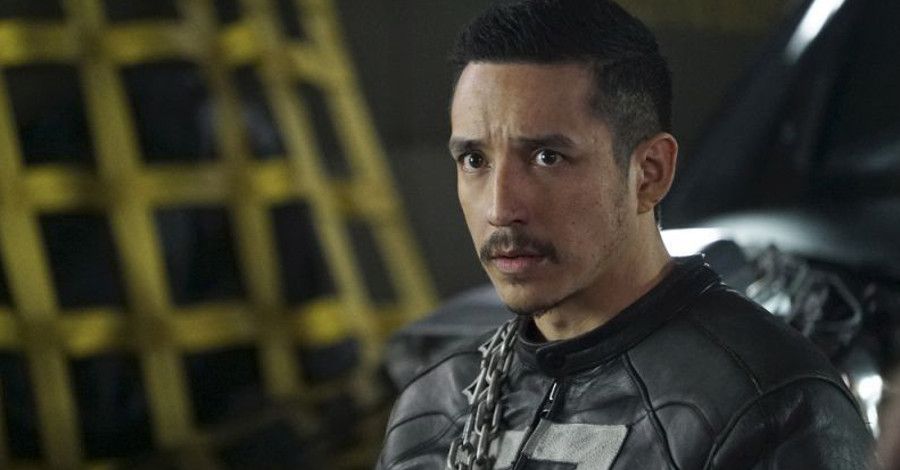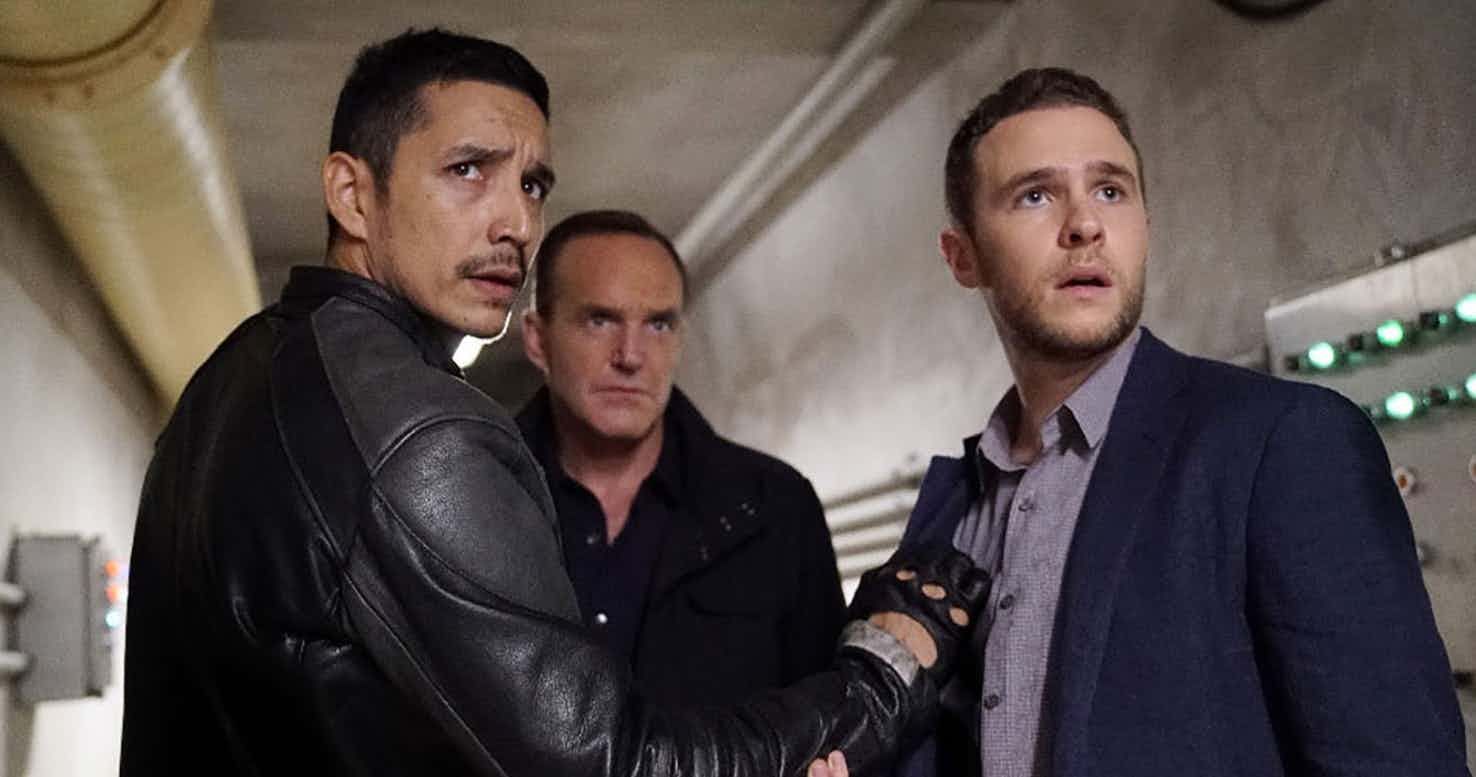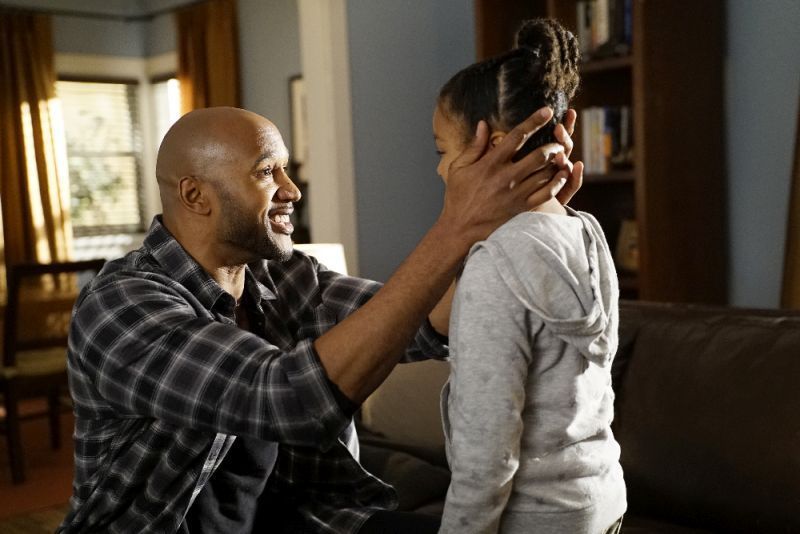It's time for a requiem for "Agents of S.H.I.E.L.D." Season 4. With its finale last night, the Marvel ABC drama did its best to unite three storylines. First was the legend of the Darkhold and its connection to Ghost Rider which launched the season with an uneven epic. Second is the saga of the Life Model Decoys that upped the quality of the season but at a slow pace. And last there's the alternate reality of Hydra that took the year into its confident final act.
But just as those stories varied in excitement, their mash-up (carrying the could have been a series finale title "World's End") feels less like a final peak and more like a medical drama EKG – occasionally spiking but equally flatlining. Even though the series has made its case to the network that its financially viable to last another year, it's hard to see the creative necessity for more of this show. But what we get still has enough enjoyable moments that quibbling over worthiness is less important than looking at what works.
Things begin with the revving of Ghost Rider's engine – an appropriate image considering the skull-faced fiery one served as the promotional hook for season 4's supposed status as a deeper, darker dive into the MCU. The Rider is as much a deus ex machina as he is a full circle story point though, seeing as he arrives just in time to be the only one who can destroy the flesh-and-blood version of Aida bent on destroying the team. For the most part, that plot plays itself out as a straight action story. Aida sets various plans into motion while Daisy, Coulson and May team up with Robbie Reyes' alter ego to burn her up before she kills someone we care about or worse. And as direct as this conflict is, it still manages to impress at least visually. Reyes' Ghost Rider is still the biggest superhero and the best visual effect the show has cooked up in four years, and watching him burn Aida, slice apart LMDs with a flaming chain and generally be an invincible badass is thrilling to watch.
The one way in which this thread touches on the larger issues from the season also has a strong connection to the MCU. When the Rider is reteamed with S.H.I.E.L.D., the question of whether Aida is a creation of science or demonology comes up, and Reyes gives the standard Cinematic Universe explanation that at some point, the two become indistinguishable. But whatever you call her, the key to defeating Aida is getting the fabled Book of Darkhold out of her hands before the Rider burns her to a crisp. And so the team sets out to do just that before their foe can destabilize the world.
And that particular plank of her plan is where the episode mashes in the LMD idea. A core component of the Marvel Comics Universe as it relates to S.H.I.E.L.D., the lifelike androids were mostly squandered in the middle of this season to serve as a complicated setup for the Hydra-verse. Similarly, Aida's plot is more about using the concept as a wrench in the story gears than it is a cool exploration into the deeper themes that come with A.I. storytelling. The villainous Russian LMDs sneak into a special investigation into the S.H.I.E.L.D./Inhuman threat (which still makes little sense on a global political scale, but okay), and they immediately demand that U.S. officials join them in their mad quest to read some old book to save the world. Just as this story is about to go right off the rails, a Daisy LMD appears to shoot resident frienemy General Glenn Talbot point blank in the head, which at least held a thrill.
But the impact of this story is again, mostly setup. Talbot miraculously survives a bullet to the skull (oooooookay) and S.H.I.E.L.D. is immediately framed as a renegade organization once again. It's familiar territory that the producers will doubtlessly twist around into something new when Season 5 arrives, but when it happens, let's hope that the Russian LMD captain isn't too big a part of the story. The character remains one-dimensional (even his name is forgettable), and there's no thrill to be had in watching a robot get shot over and over again unless it's one of the two good "Terminator" films.
Slightly better territory is the story from inside the Framework. While there are some goofy hiccups in making the thread logical (Daisy is able to manipulate the massive reality enough to place yo-yos in Radcliffe's pockets but not to stop it from collapsing on itself), once Yo-Yo and Radcliffe team up to save Mack despite his connection to his A.I. daughter, the story is on solid emotional ground. As the disembodied scientist explains to the S.H.I.E.L.D. agent who risked it all to get her man back, "You have to come to terms that he's willing to die with her in here." In the end as all people in the Framework disappear around them, Yo-Yo does exactly that. But just as she's opted to stay and die with Mack rather than go back without him, his daughter disappears and allows them to return safe and sound physically but crushed emotionally. The move opens the door for Mack and Yo-Yo to finally take the next step in their own relationship, and that's all well and good. Those crazy kids deserve it.
Otherwise, things drive to a suitably "Agents"-like conclusion. Coulson hatches a mad scheme to trap Aida, and it involves multiple head fakes including an LMD Simmons and Phil himself taking on the power of the Ghost Rider to burn up Aida when she confidently makes a play for the Darkhold. The whole sequence is full of strong scene work (Fitz and Simmons as an anchor prevents Aida's problematic "crazy ex" characterization from killing the story) and some solid action (Coulson's Rider and Aida teleporting through the bowels of a building looked great). Aida is destroyed in anguish but leaves the team fragile and on the run from the law.
All of this is well and good for an action show, but as something more affecting or satisfying, things fall way short. Key character moments like Coulson and May's coming to terms with their half romance are in part dealt with offscreen and in part punted to next season. And the major question of how Fitz can ever rejoin the crew after the evils he committed in the Hydra-verse is whisked away by Daisy in a speech that's meant to call back to her brush with entropy last season. "I tried to take the blame for everything a while ago. I died my hair. I ran away," she declares in what may be one of the great self owns in comic TV history. Why are writers obsessed with hair color as a measure of personal growth? All in all, Daisy's speech comes off as a ridiculous patch that steamrolls the real emotional issues of the story in order to give all the uneven sci-fi work room to breath.
And the bitter end is every much the mixed bag the season's three competing plots proved. As the Framework collapses, we get an understated and effective shot of Radcliffe disappearing right before he's able to toast his lost love. On the other hand, the vague tease that Coulson holds a secret with Ghost Rider – possibly related to his return from beyond the grave? – is ham-fisted and generally not intriguing. Finally, the whole S.H.I.E.L.D. team gets a moment of reprieve before being imprisoned by a shadowy figure who will doubtlessly be recast off season and a mysterious device that looks like a circa 1998 pager. And then they apparently get shipped off to space prison!
Like we said, there's a better than average chance that the show will come up with some cool concepts and story hooks for this material when they actually sit down to write Season 5. But at this point, we're watching a show that's figuring out something to do because it got an extra season order – not a show that demanded an extra season in order to finish its most important saga. Sure, "Agents of S.H.I.E.L.D." is a fun show, but it's not vital in any way anymore. ABC seems to know it as they've bumped the series from the fall schedule hoping that a true "Inhumans" series can excite the Marvel faithful a little more. But those who love "Agents" can at least enjoy the fact that things will march on for those who love it on its own terms.



